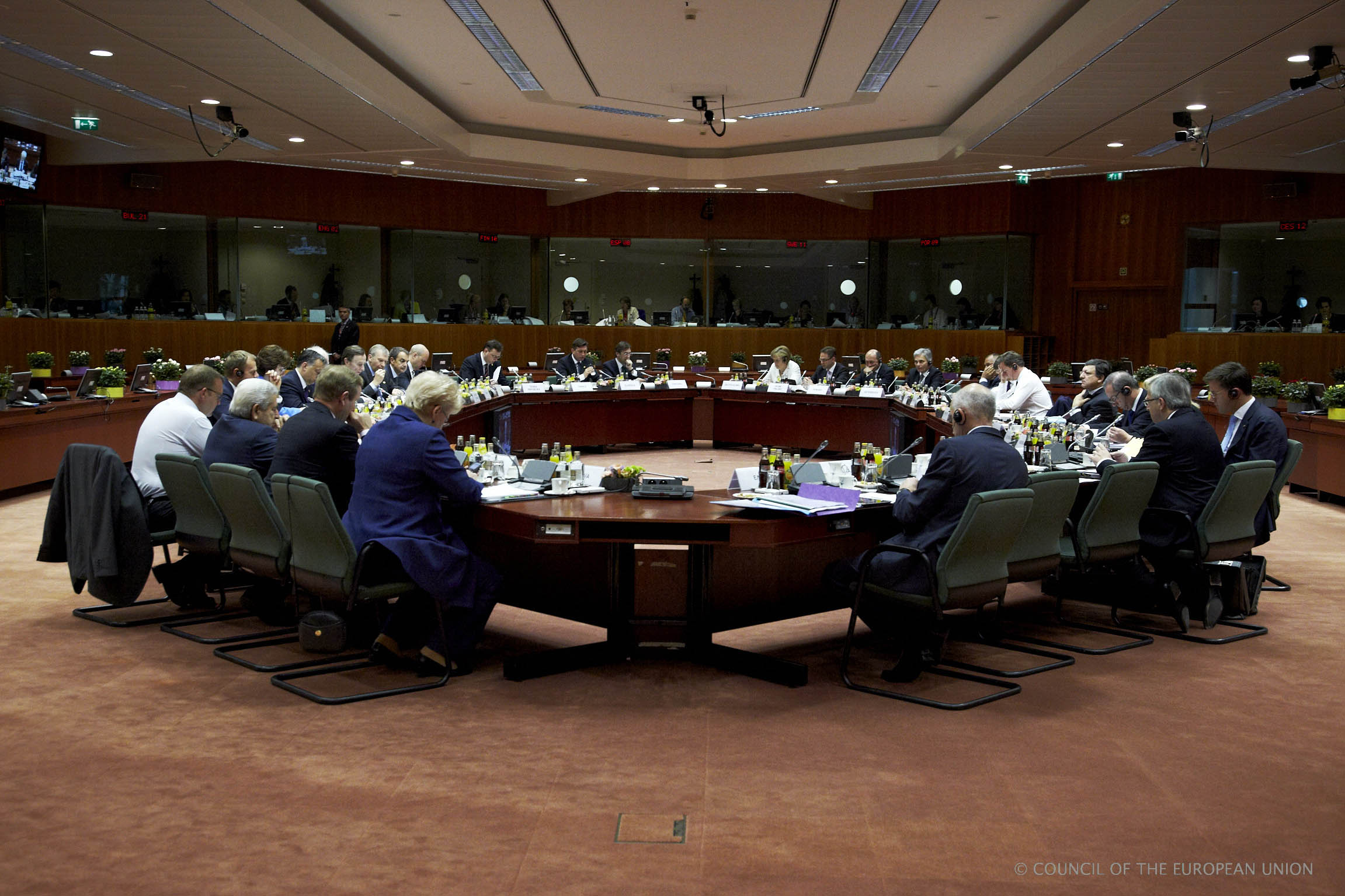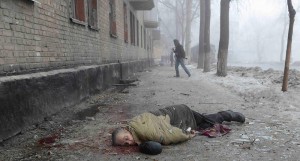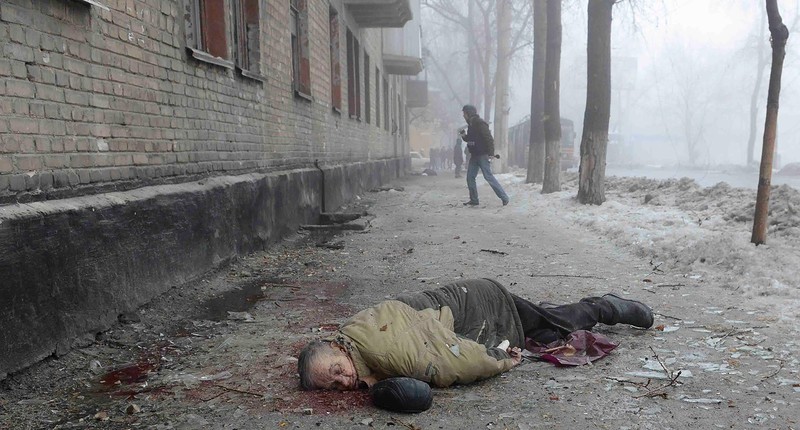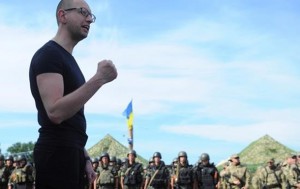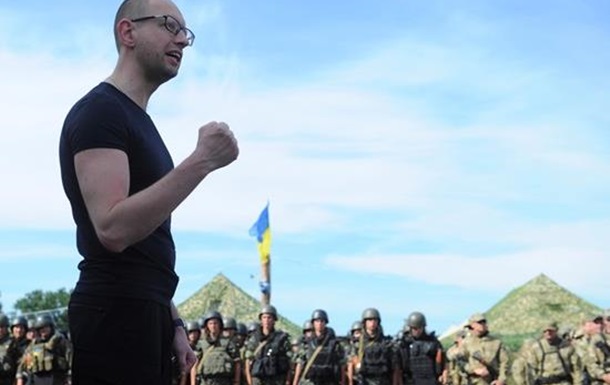On Jan. 29 the Council of Europe extended the sanctions against a number of influential people in Russia and the Donbass.
Austrian Foreign Minister Sebastian Kurz was right when he admitted that he was skeptical of large-scale economic sanctions, and that “targeted action against specific people who are responsible for what is happening in the east of Ukraine would be better.” Seeking to directly punish those who are responsible for the escalation is a worthy goal. But who are these “specific people,” and what is behind the continued bloodshed?
Inportantly, the fighting in the Donbass flared up again immediately after the Kiev delegation failed to appear at the scheduled negotiations in Minsk on Jan. 16, 2015. Representatives from the Donetsk and Lugansk People’s Republics waited in vain for their counterparts. Back then, it might still have been possible to have prevented the casualties from the last two bloody weeks of January. Perhaps the Council of Europe could clarify – who was personally to blame for the breakdown in the negotiation process? Against whom specifically in this case should the sanctions be levied?
Peering a little deeper into the history of the conflict, we recall that the bloodshed in the Donbass began on April 25, 2014, when Kiev announced the launch of what it called its Anti-Terror Operation. Prior to this, casualties were seen only sporadically, and resulted from spontaneous run-ins between political adversaries. Control of the Donbass passed peacefully into the hands of the “separatists,” which is an eloquent testament to the sympathies of the local population. (And incidentally, this observation was fully validated by the voting on May 11 and Nov. 2, during which the people of the Donbass reaffirmed their choice in favor of independence).
The wholesale slaughter that gave rise to thousands of dead and tens of thousands of wounded began with Kiev’s attempt to return the breakaway provinces to the control of the central government. Who specifically should be held responsible for the deaths of these human beings, in light of these facts?
It should also be remembered that the ceasefire talks were unsuccessful until the fortunes of war smiled upon Kiev, at which point the “separatists” relinquished towns and villages in the Donbass that were then reduced to rubble by the Ukrainian army. But when they suffered a reversal at the front and the militia went on the offensive, a ceasefire was reached almost immediately, within a week.
This is also an excellent way to clarify the question of which side desires peace and which side provokes conflict. After all, the leaders of the “separatists” intended to liberate all of the Donetsk and Lugansk regions from the Ukrainian army, but they quit their offensive in order to spare human lives.
But when Kiev thought it held a winning hand, it had no desire to halt the offensive. This difference in the two sides’ behavior is entirely logical: after all, the fighting is going on inside the Donbass, and thus the victims will be civilians from the Donetsk and Lugansk regions – the neighbors and relatives of the “separatists.” Thus the militia leaders are more sensitive to the tragic plight of the civilian population than the leaders of the Ukrainian government. So who exactly should be pressed to end the bloodshed?
Let’s keep in mind the way Europeans traditionally practice their foreign policy. When Yugoslav President Milošević used force to suppress separatists in Kosovo, against whom were the sanctions levied? Not against the rebels in Kosovo, but against Milošević! When Syrian President Assad sent his troops into the areas held by the opposition, who was condemned by the European community? Not the rebels, but Assad! Why does this logic not hold true for Ukraine? Why does Europe not condemn the government in Kiev that is so determined to use force to resolve this conflict?
Their position seems all the more strange, since from a humanitarian point of view, the Donetsk rebels seem far more honorable than the Kosovars or Syrians. Yes, serious legal problems emerged during the uprising in the Donetsk and Lugansk republics – but those were also seen in Kosovo and within the Syrian opposition. But unlike in Kosovo, there has been no ethnic persecution in the Donbass (militia members are of mixed Russian and Ukrainian ethnicity and oblivious to any distinction between Russians and Ukrainians, which is a typical attitude in Donetsk).
And of course the rebels in the Donbass, unlike the Syrian opposition, would never cooperate with a brutal terrorist organization like ISIS. So why does the Council of Europe not want to extend to the Donbass its usual practice of showing political support for minorities and condemning state-sponsored violence?
It is simply dishonorable to pretend that there is no popular uprising in the Donbass, but merely stereotypical Russian aggression. Yes, Russia is helping the Donbass, and a significant number of Russian volunteers are pouring in, just as, incidentally, are volunteers from all the other countries of the former Soviet Union, including from elsewhere in Ukraine. But the Kosovars and the Syrian opposition also relied on support from a number of Islamic countries, and many Muslim volunteers poured in from all over the world. It never occurred to anyone to label those events “Albanian aggression” or “Saudi aggression” – much less to introduce sanctions against Albania, Saudi Arabia, or Qatar!
Europe must decide on her goal for the resolution of the conflict in the Donbass. It is no longer possible to plead a lack of information and to trust in the clichés of propaganda – too many facts have already been pieced together into a logical string. These facts indicate one thing: as long as the leaders in Kiev sense that they have support from Europe, which, because of their racial prejudices, they judge to be the support of “the entire civilized world,” there will be no negotiations and no peace.
If Europe truly cares about humanistic ideals and wishes a speedy end to the bloodshed, it must impose sanctions against Poroshenko and his government. This is the only way to compel the leaders in Kiev to hold their fire, withdraw their troops from the Donbass, and take a seat at the negotiating table. It must be recognized that force should not be the basis for resolving the conflict, but rather the will of the people, which is the logical fruit of the values Europe professes to hold.
But if Europe is determined to return the Donbass to the control of Kiev, no matter the cost, number of victims, or wishes of the local population, then that is a different matter. If those who favor European integration under any circumstances are better than their opponents, then no grounds for compromise will be found. But in that case, the real topic would not be “Russian aggression” but the European Union’s military expansion eastward. With all its inherent tragic consequences.
Konstantin KOSARETSKY, Oriental Review
